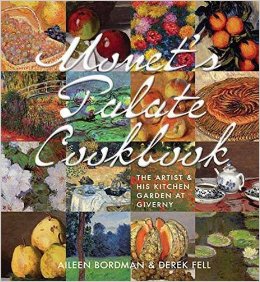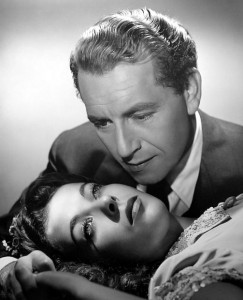If you love art, food, gardens, farm-to-table eating (as do HG/BSK), then Monet’s Palate Cookbook is a cookbook you must have. You probably have been dazzled by the visual beauty of Claude Monet’s paintings of the water lilies at his pond in the garden of his Giverny home. But, you may not have been aware that, Monet, a confirmed gourmand, had an extensive kitchen garden and relied upon the freshness and flavor of its produce. Monet’s Palate Cookbook is subtitled “The artist and his kitchen garden at Giverny.” The authors are Aileen Boardman, film maker and Monet authority, and Derek Fell, renowned garden writer. There are 60 recipes (all rigorously tested by Boardman), tips on gardens (big and small) by Fell, and beautiful photography by Steven Rothfeld. It is a stimulating book. You will have an urge to plant (even a few unambitious windowsill pots of basil and parsley), race to a museum to view some of Monet’s work (the best are in Paris), or simply prepare a meal of savory treats (the recipes, derived from Manet’s table, will make you ravenous). The introduction to the book is by Meryl Streep. The actress was also the narrator of the PBS documentary by Boardman, “Monet’s Palate: A Gastronomic View From the Gardens.” Viewed on 350 PBS stations, the documentary has interviews with Alice Waters and Daniel Bouloud among other culinary luminaries. Both the documentary and the book are treasures, fitting tributes to a great artist who linked imagination with a love of the earth and the pleasures of the table.
Monet’s Palate: A Great Cookbook
October 11th, 2016 § 4 comments § permalink
No to Nostalgia
July 12th, 2013 § 2 comments § permalink
HG/BSK watched a World War Two propaganda movie (set in an improbable Poland) with perky Ida Lupino and stiff Paul Henreid. Excruciating. Terrible acting. Moronic plot. Next night watched Detective Story, the film adaptation of Sidney Kingsley’s Broadway hit play of the same name. When it was released the film was lauded for its realism. Hmmm…Kirk Douglas and Eleanor Parker are the stars and the deliver stagey, scenery-chewing performances. William Bendix, in a supporting role, is the only actor in the film who seems to have a grasp on naturalist performing. HG/BSK agreed: Today’s movie actors are infinitely better than yesterday’s. Yes, there were interesting personalities in the past (Cagney, Bogart, Gable, etc.) but few actors with the abilities of today’s stars. No one with the range of Meryl Streep, Philip Seymour Hoffman and many others. Now, how does this relate to HG’s main focus, food? Well, HG may get nostalgic, and rightfully so, about long closed classic New York restaurants like Gage & Tollner, Luchow’s and Christ Cella; also, HG may get a bit wistful recalling the hearty blue collar eats of a New York that simply does not exist anymore. But, the reality is that today’s restaurant cooking is much better than that of the past. There is more emphasis on fresh, local ingredients and less use of butter, cream and heavy sauces. Greater use of a wide range of international ingredients. HG/BSK thought about this while enjoying imaginative dishes at 3 Petit Bouchons, a charming Montreal bistro. Grilled octopus with grilled potatoes. Cod with fiddlehead ferns and asparagus. Duck confit on Waldorf salad. Unusual sauces. A light touch. Dishes that would never have appeared on a menu 40 years ago. Also, because of changes in immigration patterns and disruptions in Asia and the Middle East, today’s restaurant diner (especially in New York) can taste extraordinary (and often very inexpensive) dishes from many parts of China as well as Thailand, Burma, Malaysia, India, etc. And, excellent Syrian, Lebanese, Turkish food abounds. The exposure to these diverse cuisines and the availability of the ingredients to prepare them has been one of the great boons to our restaurant culture — expanding palates and influencing chefs in the most positive way. To give you an idea of how insular cuisine was (even in New York) the big town in the 1950’s had only one Mexican restaurant — Xochitl. And, that was quite ordinary and Americanized.

